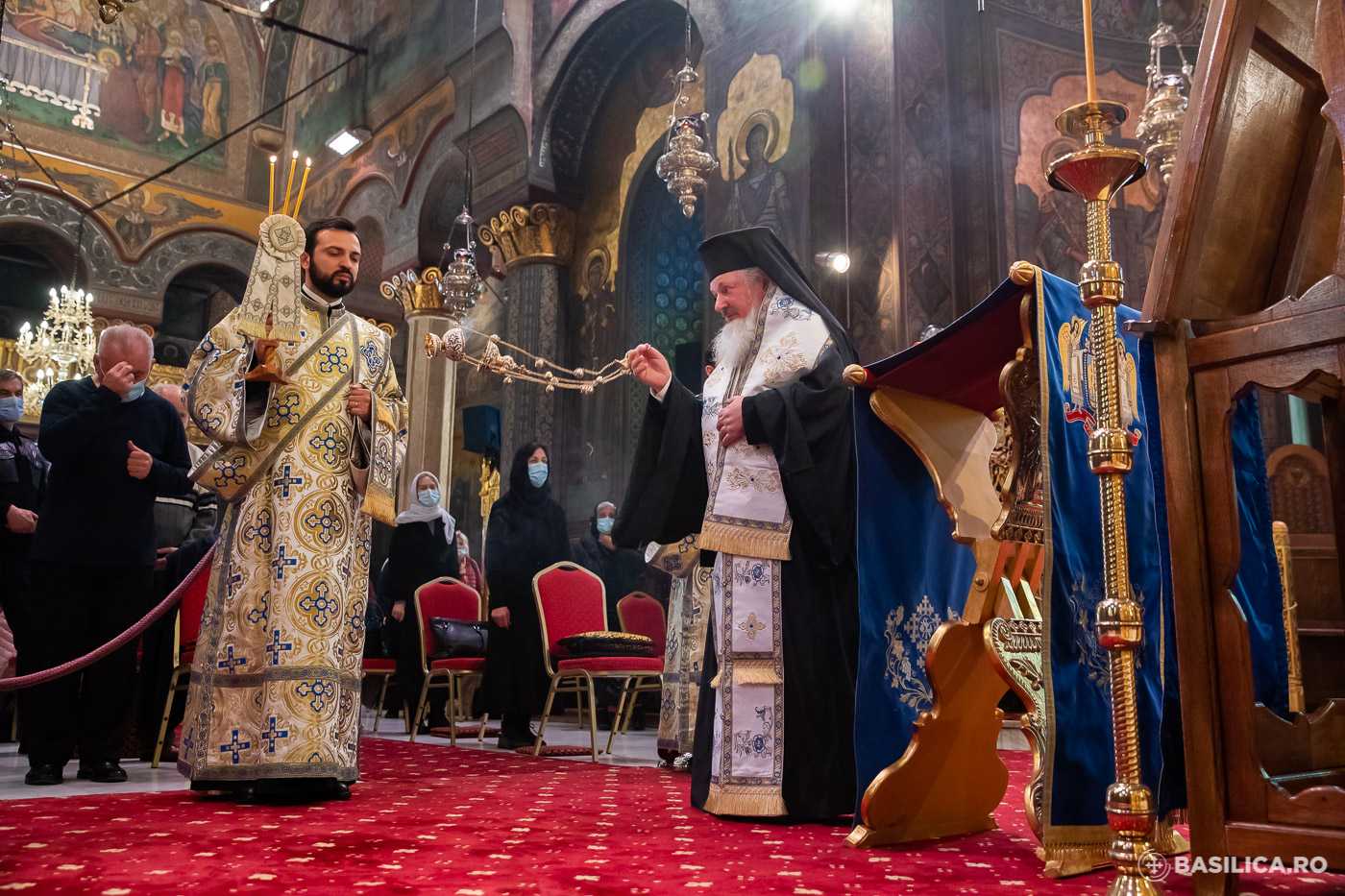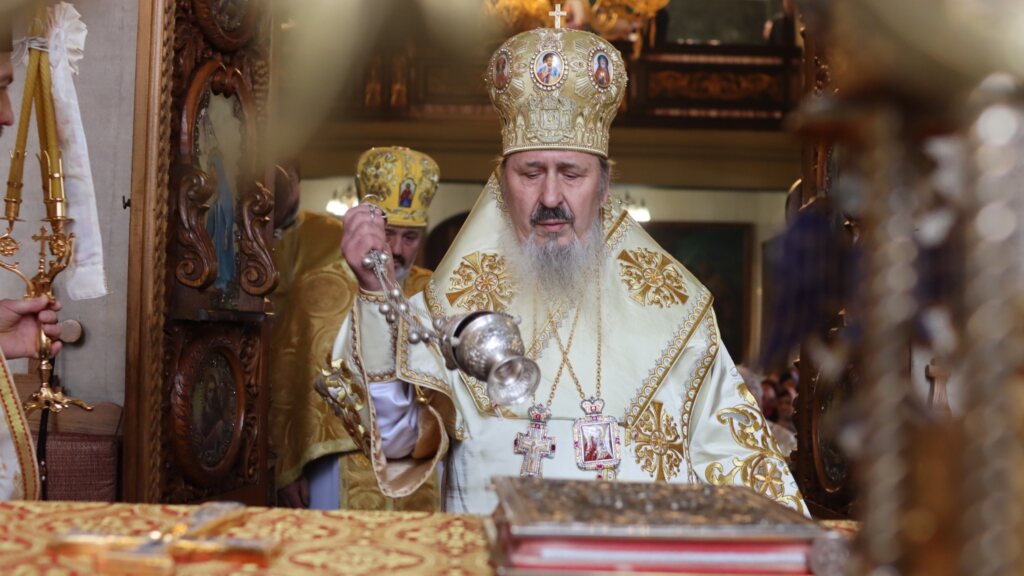In his sermon delivered last Friday at the Patriarchal Cathedral, the Patriarchal Auxiliary Bishop Varlaam of Ploieşti stressed that “the fasting season involves a spiritual struggle with ourselves, against the temptations that come from around us and, especially, against the spirits of evil.” His Grace said that the Mother of God comes to the aid of Christians who call her in prayer, just as she repeatedly came to the aid of the people of Constantinople when the city was under siege.
The patriarchal auxiliary bishop recalled that “every Christian who strives to fulfil the law of Christ during life is challenged and tempted by demons” and that “our struggle as is not against flesh and blood, but against the rulers, against the authorities, against the spiritual forces of evil.” And the help of the Mother of God is unexpected in this fight.
“Tonight, we have asked for the help of the Mother of God to support us in this last effort of the last days of Lent, to protect us from any temptation and any attempt that comes from these spirits of evil, to vouchsafe us to carry out the rule of fasting more diligently, and during the week of the Holy Passion to identify ourselves, each according to their spiritual powers, with the Passion of the Lord, who willingly lets Himself to be mocked, condemned, crucified and buried, so that with us He may rise on the third day from the tomb, giving us eternal life.”
His Grace also explained why the Church ordained the reading of the Akathist Hymn in the fifth week of Lent. “To be of help to us in the remaining two weeks of fasting,” said the patriarchal auxiliary bishop on April 16.
“In these two weeks we are required to fast much more than in previous weeks, and we are called to multiply prayer, almsgiving, spiritual feats to approach as possible, with cleansed hearts and a conscience healed by the Mysteries of Confession and Communion, the luminous feast of the Resurrection of the Saviour Jesus Christ.”
During his homily, His Grace presented a short history of the Akathist Hymn, calling it a true literary masterpiece. He reminded that the Holy Fathers recommend reading this prayer as often as possible because it “brings much help from the Mother of God.”
“The Akathist is chanted in the Church in honour of the miracles you heard reading tonight at the chant stand, namely the rescue of the capital of the Byzantine Empire from various sieges by the barbarians.”
“This Akathist Hymn was very popular throughout the Orthodox world and, since the beginning of the ninth century, it was also translated into Latin for Christians in the West, because it was read at various times of trial.”
The Akathist Hymn of the Mother of God, also known as the Akathist of the Annunciation, is read on Friday, in the fifth week of Great Lent.
This hymn dates from the seventh century and represents the gratitude of the people of Constantinople to the Mother of God for saving the city from foreign invasions.
Photography courtesy of Basilica.ro / Mircea Florescu
Follow us on Twitter: @BasilicaNews






